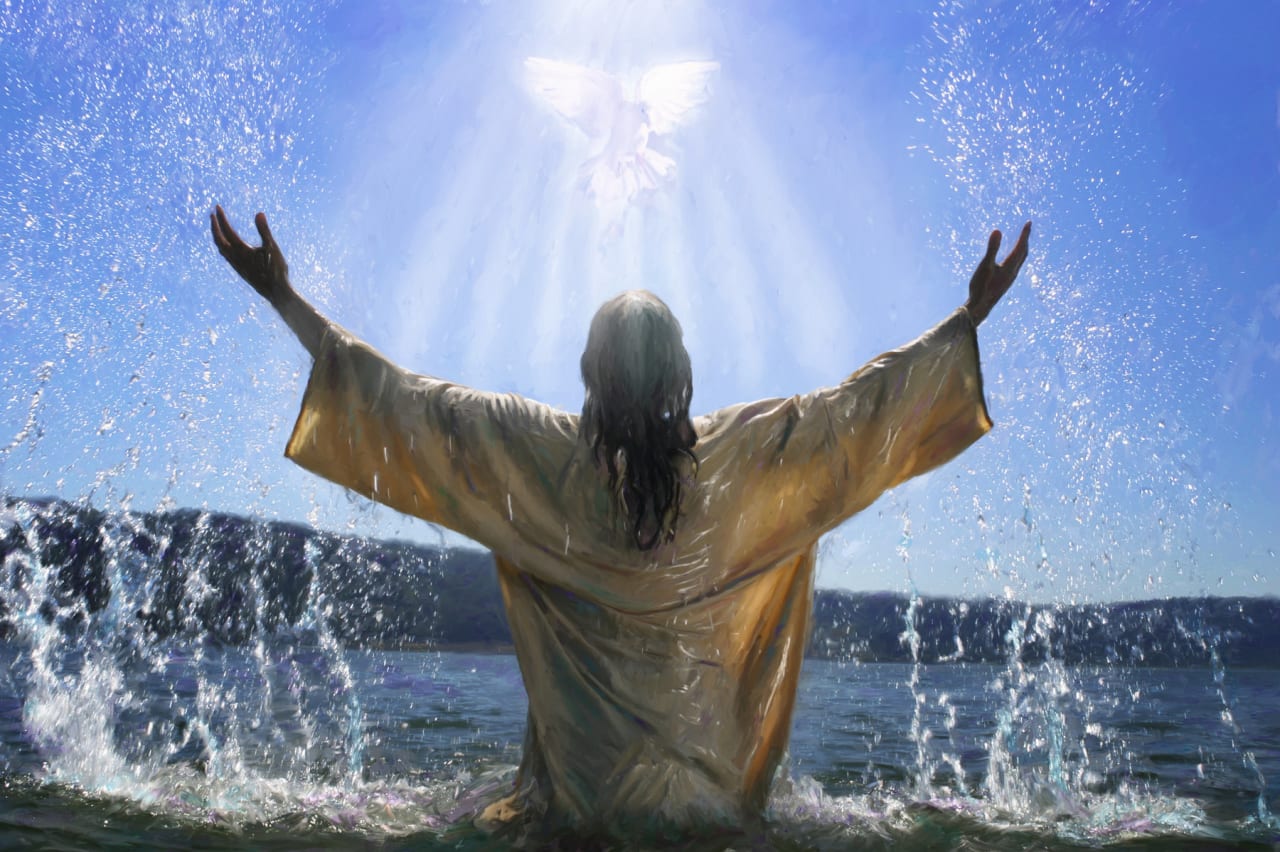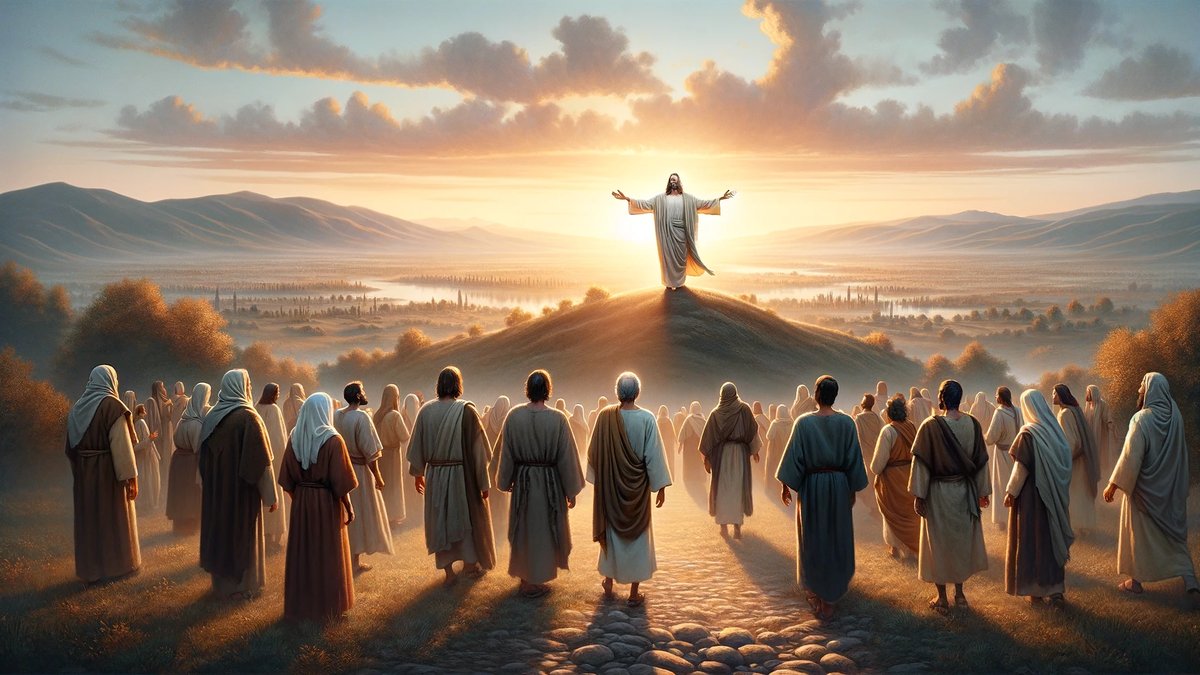Messiah Men's Volleyball - Deep Meanings
When you hear the name "Messiah," it might bring to mind different things for different people. For some, it's connected to a specific group, like perhaps a sports team, maybe even the Messiah men's volleyball team, known for their skill and spirit on the court. But the word itself, "Messiah," carries a much older, very rich history and significance that goes far beyond any single team or event. It's a term with deep roots, stretching back through time, holding a special place in many traditions and stories.
You see, this word, which is really quite powerful, has meanings that have shaped beliefs and understandings for thousands of years. It points to a figure of great importance, someone set apart for a truly unique purpose. The concept isn't just about a name; it's about an idea of leadership, of being chosen, and of bringing about significant change. So, while we might think of it in a modern context, like cheering on the Messiah men's volleyball players, there's a whole lot more to unpack about where the word comes from and what it truly signifies.
This discussion is going to take a closer look at the origins and deeper meanings tied to the word "Messiah." We'll explore its background, how it has been understood, and what it suggests about certain important figures and events. It's a way, perhaps, to appreciate the depth behind a name, even when it's part of something as lively and competitive as Messiah men's volleyball.
- Unistar Two Babies One Fox
- Aishah Sofey Only Leak
- Christopher Walken Net Worth
- Emily Compagno Children
- Lifemd Reviews
Table of Contents
- What Does "Messiah" Really Mean?
- Who Was Jesus - The Central Figure?
- The Promise of Another Coming - And What It Means for Messiah Men's Volleyball
- Who Are the False Messiahs?
- The Name "Jesus" - More Than Just a Word?
- Who Were Jesus's Closest Companions?
- The Identity of the Messiah - A Core Belief for Messiah Men's Volleyball
- A Final Thought for Messiah Men's Volleyball Supporters
What Does "Messiah" Really Mean?
You know, when we talk about the word "Messiah," it really has some very deep roots. It comes from an old Hebrew word, "mashiach," which basically means "the anointed one" or "the chosen one." This idea of someone being "anointed" is something you see quite a bit in ancient times, especially in the Old Testament stories. People who held special roles, like prophets who spoke for a higher power, or priests who led religious ceremonies, and even kings who ruled over their people, were often set apart in a rather special way. They would have oil poured on them, a symbolic act that showed they were picked for a particular job or purpose. It was a big deal, actually, a sign of their important standing and the work they were meant to do. So, when we hear "Messiah," it's connected to this long-standing tradition of being specially selected for something very significant, almost like being hand-picked for a major role. It gives you a bit of a sense of the weight and importance behind the name, doesn't it?
The Anointed One - A Look at Messiah Men's Volleyball's Roots
It's interesting, too, that the word "Christ" comes from a Greek word, "christos," which also means "the anointed one" or "the chosen one." So, whether you're talking about the Hebrew "mashiach" or the Greek "christos," you're referring to the same core idea: someone who has been set apart, given a special calling. This concept of being "anointed" isn't just a casual thing; it points to a unique identity and a very specific purpose. It's a title, really, that carries a lot of meaning, showing that the person is meant for something truly important. For anyone interested in the history behind names, especially those connected to groups like Messiah men's volleyball, understanding this fundamental meaning is, in some respects, quite helpful.
Who Was Jesus - The Central Figure?
In many conversations about the Messiah, Jesus often comes up as the key person. The Bible, for example, tells us that his name itself holds a special meaning. According to a passage in Matthew, his name, "Jesus," actually means "Savior." This gives you a clear idea of the role he was understood to play. He was seen as someone who would bring about rescue or deliverance for people. It's a very direct connection, really, between his identity and his purpose, making it quite clear what his presence was believed to signify. So, when we talk about the central figure, this meaning of "Savior" is, in a way, at the heart of it all.
- Emily Compagno Husband
- Bomb Iran Vince Vance
- Unveiling The Charisma Of John Stamos Young
- Pok%C3%A9mon Odyssey
- Sowte Ifsa
His Identity and Role - A Deeper Look for Messiah Men's Volleyball Fans
For those who believed in him, Jesus became the guiding force in their lives. He was not just a teacher or a leader; he was accepted as the promised Messiah, the one who was foretold. This shift, where he took on the role of the Lord of their lives, shows a deep personal commitment and trust. It wasn't just about following rules or ideas; it was about giving over control and allowing him to lead their existence. This kind of relationship, where a figure becomes the absolute focus and guide, is pretty significant, and it's a core part of how many people view his identity and purpose, even when considering broader topics like the spirit of competition in Messiah men's volleyball.
The Promise of Another Coming - And What It Means for Messiah Men's Volleyball
Something that has been talked about for a very long time is the idea of a "second coming." This is a belief that Jesus, who was here before, will return again. It's not just a hopeful wish; it's something he apparently promised to his followers. He told his disciples, his closest companions, that he would indeed come back. This promise has been a source of comfort and expectation for many people through the centuries. It shapes how some view the future and what they believe will happen next. So, the idea of a return is a very significant part of the overall narrative, something that has kept hope alive for a long, long time.
Preparing a Place - A Deeper Look for Messiah Men's Volleyball Fans
Part of this promise involves Jesus speaking about getting a place ready. He once said something like, "In my Father's house are many dwelling places. If it were not so, I would have told you. I go to prepare a place for you." This particular statement, which is in the Bible, gives a sense of a future hope and a welcoming space. It suggests that there's a plan, a preparation happening for those who believe. It's a comforting thought for many, a vision of a secure and peaceful future. This idea of preparation and a future home is a pretty central piece of the belief system, providing a sense of purpose and direction for many, perhaps even reflecting the careful planning seen in a well-organized Messiah men's volleyball team.
Who Are the False Messiahs?
It's important to know that Jesus also gave warnings about people who would come along later, pretending to be him. He said that "counterfeit Christs" would appear, trying to trick people. These individuals would, in a way, put on a show, claiming to be the Messiah, saying they were the ones who would rescue the world. This warning is pretty serious because it suggests that not everyone who claims to be a savior or a chosen leader is actually who they say they are. It's a call to be careful, to think critically, and not to just accept any claim at face value. So, the idea of false figures is a very real part of the overall message, something to be aware of.
Spotting Impostors in the World of Messiah Men's Volleyball
The Bible also speaks about people who would deny the truth about Jesus being the promised Messiah. It calls them "liars" and says that anyone who denies that Jesus is the Christ is "antichrist." This is a pretty strong statement, actually. It's about a fundamental disagreement, a refusal to accept who he was believed to be. This kind of denial, according to the text, is a significant departure from the core belief. It highlights the importance of recognizing and holding onto what is believed to be the genuine truth, almost like knowing the real rules of the game in Messiah men's volleyball to spot any unfair play.
The Name "Jesus" - More Than Just a Word?
The name "Jesus" itself holds a deep meaning, as we touched on earlier. According to the Bible, in Matthew, the name "Jesus" means "Savior." This isn't just a random name; it's a name that carries a specific purpose and identity. It tells you, in a way, what his mission was believed to be – to bring salvation, to rescue. This meaning is pretty central to how he is understood by many. It gives a clear picture of his role and what he was meant to achieve. So, the name itself is, in some respects, a summary of his entire identity and purpose.
Choosing a Path - A Decision for Every Messiah Men's Volleyball Supporter
There's a well-known story where a Roman leader, Pilate, put a choice before the Jewish leaders. He essentially asked them to pick between two people: Jesus Barabbas or Jesus who was called the Messiah. This moment was a very significant decision point, a clear fork in the road. It forced a choice between someone who was a known rebel and the one who was believed to be the chosen leader. This kind of decision, where you have to pick between two very different paths, is a powerful moment in the story. It highlights the importance of making a clear choice about who you will follow or what you will believe, much like a critical decision point in a close Messiah men's volleyball match.
Who Were Jesus's Closest Companions?
During his time, Jesus had a group of twelve close followers, often called his disciples. These were the people who spent a lot of time with him, learning from him and witnessing his actions. Their names are pretty well-known to many who study these stories. They included Simon Peter, Andrew, James (who was the son of Zebedee), John, Philip, Bartholomew, Thomas, Matthew, James (who was the son of Alphaeus), and a few others. These individuals were, in a way, his inner circle, the ones he relied on most directly. They played a very important part in spreading his message after he was gone, so their roles were quite significant.
The Twelve Disciples - Their Role in the Messiah Men's Volleyball Narrative
These twelve individuals were more than just students; they were meant to carry on his work and share his teachings. They were the ones who would tell others about what they had seen and heard. Their experiences with him shaped their lives and, eventually, the course of history for many. They were, in some respects, the first team, working together to spread a message. Their unity and dedication were quite important, almost like the cohesion and teamwork you see in a successful Messiah men's volleyball squad, where each player has a specific role to help the group achieve its goals.
The Identity of the Messiah - A Core Belief for Messiah Men's Volleyball
The core belief about the Messiah is that this figure is "the anointed one." This idea is consistent across both Hebrew and Greek understandings of the word. It's not just a descriptive term; it's a title that defines the person's identity and their special calling. This means that the Messiah is not just any leader or any chosen person; they are specifically set apart for a divine purpose. This identity is, in a way, the very foundation of the belief system for many, something that really defines what they understand about the world and their place in it.
Denying the Truth - What It Means for Messiah Men's Volleyball
As we mentioned earlier, there's a strong statement in the Bible, specifically in 1 John 2:22, that speaks about denying Jesus as the Christ. It says, "Who is a liar but he who denies that Jesus is the Christ? He is antichrist who denies." This passage really highlights the importance of accepting this specific identity. It suggests that denying this truth is a serious matter, a direct opposition to what is believed to be fundamental. So, the acceptance or rejection of this identity is a very significant point for many who hold these beliefs, almost like a crucial play that determines the outcome for a Messiah men's volleyball team.
A Final Thought for Messiah Men's Volleyball Supporters
We've taken a look at the very deep meanings behind the word "Messiah," exploring its origins as "the anointed one" or "the chosen one" in both Hebrew and Greek. We've talked about Jesus as a central figure, whose name means "Savior," and his promise to return and prepare a place. We also discussed the warnings about false figures who might claim to be the Messiah and the significance of accepting Jesus's identity as the Christ. Finally, we touched on his close companions, the twelve disciples, who played a part in sharing his message. This exploration gives us a sense of the rich historical and spiritual background connected to a name that carries a lot of weight and meaning for many.



Detail Author:
- Name : Jacques Farrell
- Username : heaney.tate
- Email : maeve41@fay.com
- Birthdate : 1978-01-31
- Address : 3679 Leora Causeway Suite 922 Baileyfurt, NH 00938-6359
- Phone : +1-267-625-6438
- Company : Kertzmann-Vandervort
- Job : Landscaper
- Bio : Qui numquam placeat et sit qui. Quo esse fugiat natus ducimus. Labore ut deserunt iusto ipsa officiis eaque. Cupiditate esse dolorum consequatur voluptatem atque non.
Socials
linkedin:
- url : https://linkedin.com/in/bo_rau
- username : bo_rau
- bio : Debitis quia explicabo quis autem ad.
- followers : 3653
- following : 2507
tiktok:
- url : https://tiktok.com/@raub
- username : raub
- bio : Eveniet enim voluptatem laborum in error consequatur.
- followers : 2077
- following : 2922
instagram:
- url : https://instagram.com/brau
- username : brau
- bio : Laborum pariatur occaecati omnis ut. Ipsa recusandae qui minima vel amet.
- followers : 6359
- following : 361
twitter:
- url : https://twitter.com/brau
- username : brau
- bio : Ut sed est aut soluta inventore laudantium. Magni ut vel ullam ducimus error sint ipsam qui.
- followers : 2674
- following : 1333
facebook:
- url : https://facebook.com/raub
- username : raub
- bio : Debitis vitae atque modi sed aut. Eos temporibus natus est dicta quas.
- followers : 6978
- following : 2203